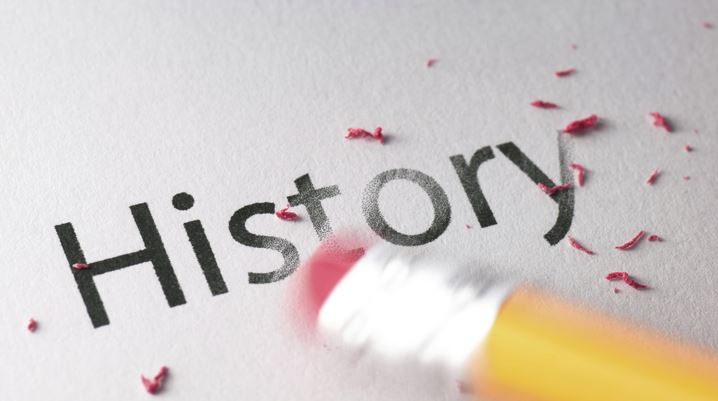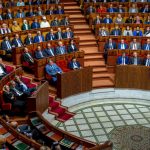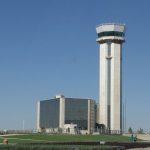Misinformation and manipulation of historical facts in the European information space will intensify as the anniversary of the end of World War II in Europe is approaching.
Amid the lack of foundations to gather foreign states countries around itself, a clear crisis of leadership, and massive violations of international law by the Kremlin, Moscow is actively exploiting historical content as a basis for interaction with foreign states to impose leadership in such relations.
On January 28, State Duma deputy Vyacheslav Nikonov said that after Brexit, the EU is turning into “Hitler’s coalition.” He explained this perception by assuming that, after Britain withdrew from the EU, it’s allegedly only the countries that were once part of the Hitler axis remained in the European Union. Despite the occupation of European countries and a massive resistance movement in their territories, Nikonov accused France of having its seized factories working for the Third Reich.
Despite multiple logical errors and opportunities for similar accusations to be voiced against Russia, whose occupied territory also housed enterprises operating in the interests of Nazi Germany, Nikonov’s statement cannot be referred to as his personal misconception. Nikonov is not only the leader of the Russkiy Mir [Russian World] Foundation, but also the grandson of the Soviet Foreign Minister Vyacheslav Molotov, the man responsible for signing the agreements with his German counterpart von Ribbentrop. These agreements marked the start of the occupation of Poland, Czechoslovakia, and other CEE countries.
De facto, Nikonov voiced the position of the Russian leadership, which exploits the topic of World War II, narrowing its territorial context to the borders of Europe with a clearly defined geopolitical goal.
The Kremlin expects such accusations to force European countries to make excuses for the very fact of their occupation. Moscow’s main task is to force the world community to recognize Russia’s exclusive role in WWII. Obviously, such a goal is not only the basis for strengthening Russia’s geopolitical position.
There is no doubt that the invitation of world leaders to events marking the 75th anniversary of the end of WWII is seen as an element in trying to break through isolation and ensure Russia’s return to the group of global powers after it was expelled from certain international organizations over the annexation of Crimea and the war in Donbas.
By manipulating the topic of WWII, Putin not only intends to emphasize Moscow’s right to enjoy benefits of a permanent seat on the UN Security Council. The celebration of the so-called Victory Day in Russia has long turned into a demonstration of military might. The invitation of world leaders to such an event is nothing but an intimidation of other countries due to speculation on the image of a winner in the war. Thus, Putin once again underpins Russia’s claim of being a successor to the Soviet Union. And this means that the Cold War policies and confrontation with the West will continue. Although in today’s Russia neither Communism nor promotion of a global socialist revolution is a national ideology, their desire for coercive transformation and subjugation of other countries and expansion in Europe remained among the guidelines of Russian modern politics. The idea of world Communism was replaced by that of the so-called “Russian world”, based on Russian chauvinism and nationalism, which in its essence differs little from the ideology of National Socialism of the Third Reich: domination and prevalence of one nation over others, exclusive positioning in the world, and expansion unlimited by international law.
Putin has been speculating on WWII for several years already. He first stated that Russia could have won the war alone, without participation of other Soviet republics. This rhetoric reflected Moscow’s struggle for leadership in the post-Soviet space. But such rhetoric in relation to European countries is a challenge for Europe, as its continuation use could have unpredictable consequences, may lead to and financial and economic demands, and created prerequisites for redrawing the European map.
There is no doubt that the Kremlin is able to secure the presence of certain heads of state in Moscow on May 9. These, of course, will include the leaders of Russia’s satellite states, like Nicaragua, Serbia, a number of African republics, and, undoubtedly, Syria. But Putin inviting EU leaders, especially in the wake of Nikonov’s statement, will put them in a vulnerable position. After all, their status at such an event will slide from that of partners in the anti-Hitler coalition to actual accomplices of Hitler. And Putin will once again dominate the leaders of a democratic Europe, especially in the eyes of the Russians. Meanwhile, in Russia’s information space, Nikonov’s statement is now gradually taking up form of a national stance.
So the question arises: is the Moscow visit of French President Emmanuel Macron really worth being obviously humiliated by his Russian counterpart? A similar question is relevant to the German Chancellor, who has found herself in an even more delicate position.
Germany, France, Austria, and other EU member states today are incomparably more democratic states than Russia, with a better rule of law. They respect the norms of international law and don’t pursue an aggressive policy across the continent, in contrast to the killings, poisonings, cyberattacks, espionage, and unprecedented misinformation efforts by Moscow. However, Russia’s plan is designed to level out these advantages and put Moscow above them due to speculation on history. In this regard, our leaders’ attendance at the Kremlin’s geopolitical show will look like a slap in the face to the entire European community and evidence of their willingness to participate in the Kremlin’s manipulative plots, while losing our own dignity.
Armand Chouet, lansinginstitute.org Director General, Paris




